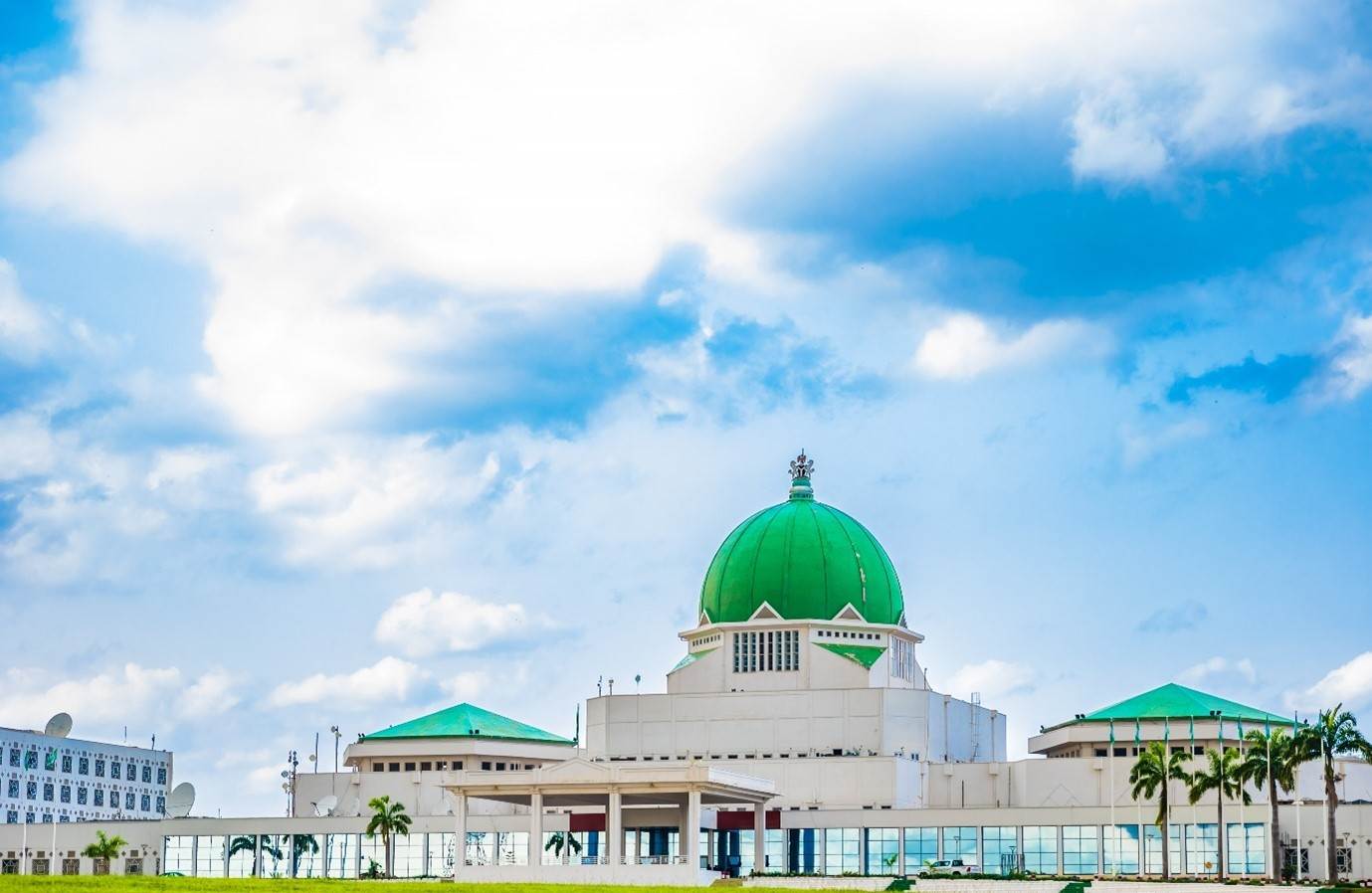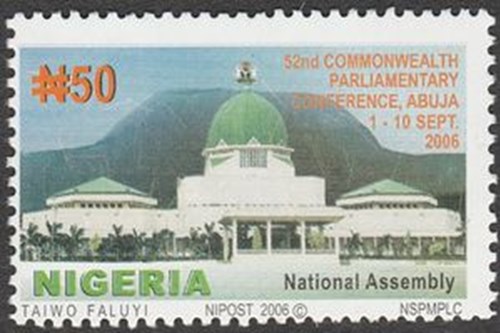
Nigeria: ‘Democracy Beyond Military Rule’
This CPA blog was published in April 2025 and was written by Samuel Sallybanks during his internship with the CPA Headquarters Secretariat between January and April 2025. It is part of a series on democratic progression in the Commonwealth, which you can find here.
The views expressed in this blog are provided by the author and do not reflect the view of the wider CPA membership.
Nigeria is the biggest country in Africa by population and one of its emerging financial centres. The country is also an active participant in the Commonwealth today following previous suspensions.
Nigeria was suspended by the Commonwealth in 1995 following the execution of Ken Saro-Wiwa, an environmental campaigner, by the military regime of President Sani Abacha. The suspension proved challenging for the Nigerian Commonwealth Secretary-General, Chief Emeka Anyaoku, who served as the third Secretary-General from 1990 to 2000.
Abacha’s sudden death in 1999 led Nigerians to fear further military rule but instead were greeted with elections. Although voting irregularities were present, Olusegun Obasanjo, the former military head of state between 1976-79, won a majority on behalf of the ‘People’s Democratic Party’ (PDP).[i]
Obasanjo’s election saw Nigeria readmitted to the Commonwealth in May 1999.[ii] As a result, the CPA brought six Nigerian State Legislatures (Anambra, Borno, Kaduna, Lagos, Niger and Ogon) out of abeyance.[iii]
Like Fiji and Pakistan, Nigeria endured a series of military coups with the first in 1966 and the most recent in 1993. Therefore, Obasanjo acted to move Nigeria beyond the military psyche engrained into society. A series of articles published in The Parliamentarian in 2000, from both government and opposition lawmakers, praised Obasanjo’s progress.
Nduka Irabor, a PDP representative elected in February 1999, spoke of the challenges faced by democratic society. A combination of Nigeria’s young population and experience of military rule meant that everyone “below the age of 40 had only lived in brief periods of democracy.”[iv]

Above: The Supplement to The Parliamentarian titled ‘Nigeria: Democracy in Progress’
To ‘introduce’ democracy to most Nigerians, Irabor suggested that the Executive needed to act accordingly so as to not replicate the years before. He added that as Nigerians were mostly ‘bewildered’ by democracy, the public needed greater education on the role of the Legislature as a law-checking body.
Similarly, Senator Adamu Augie of the All-People’s Party (APP) explained how opposition parties worked to uphold democracy following Obasanjo’s election. Following the election, the APP and the ‘Alliance for Democracy Party’ (ADP) both challenged Obasanjo’s election.
However, once the result was upheld the APP-ADP “halted the legal process in the larger national democracy.”[v] Their decision reflected the demands of the electorate and sought to prevent coup-plotters taking advantage of potential constitutional dismay.
Obasanjo rewarded the decision not to pursue discrepancies in the courts by forming a multi-party cabinet. Augie was highly supportive of this measure and noted how governance had improved significantly because of consistent dialogue in the national interest.
Opposition Senator Olabiyi Durojaiye of the ‘Alliance for Democracy Party’ (ADP) praised government actions which promoted democracy in both domestic and international spheres. Within Nigeria, Durojaiye commended the forced retirement of 93 military officers who previously held posts in government.[vi]
Building on Senator Augie’s argument, Durojaiye also wrote that this measure would secure democracy. Internationally, the Senator praised Obusanjo for returning Nigeria to the global stage through his chairmanship of the Non-Aligned Nations Pact and participation in ECOWAS and the OAU. Despite these advancements, Durojaiye pointed to the issue of ‘old-soldier types’ in the Legislature.

Above: A special stamp was issued in Nigeria for the 52nd Commonwealth Parliamentary Conference in 2006 (CPA Archival Photograph).
In the following years, Nigerian democracy progressed healthily under Obasanjo’s leadership evidenced through their active participation in the CPA and the Commonwealth. In 2002, Obasanjo was the lead speaker at the 9th Wilton Park Conference on ‘Enhancing Good Governance by Curbing Corruption’ and a year later, Nigeria held the Commonwealth Heads of Government Meeting (CHOGM).[vii]
The 2003 CHOGM was significant in that all Commonwealth members signed up to the Abuja statement on Zimbabwe, including 19 African nations.[viii]
In September 2006, Abuja hosted the 52nd Commonwealth Parliamentary Conference on behalf of the CPA, with a special supplement to titled ‘Nigeria: Democracy in Progress’.[ix]
This included a range of articles from Nigerian Parliamentarians covering the state of democracy, the parliamentary system, the economy and social and environmental issues. Further participation from Nigeria was marked by Abia State’s admission into the CPA in 2007.[x]
Nigeria has not returned to military rule since its re-admittance to the Commonwealth in 1999. Progress under Obasanjo marks a remarkable feat for a country with an indentured past of military rule and documents how the national pursuit of democracy can temper divisions.
Moreover, it provides a roadmap that shows that participation with Commonwealth institutions can lead to a situation where former ‘pariah’ states can re-emerge on the global stage.
References:
[i] Observing the 1998-99 Nigeria Elections
[ii] Derek Ingram, Commonwealth Update, The Round Table, 88 (352) (October 1999) 547-567
[iii] CPA Annual Report, 2000
[iv] Hon. Nduka Irabor, MHR, ‘The Real Transition – Replacing the military mentality with a democratic ethos’, The Parliamentarian, Issue 3, (July 2000) P.241-243
[v] Sen. Adamu Augie, ‘From Doubts to Democracy – Solving basic problems and building confidence’, The Parliamentarian, Issue 3, (July 2000)
[vi] Sen. Olabiyi Durojaiye, ‘Nigeria – Making a Robust Start’, The Parliamentarian, Issue 3, (July 2000) P.245-251
[vii] CPA Annual Report 2002
[viii] UK Hansard Commonwealth Heads Of Government Meeting, Volume 415: debated on Tuesday 9 December 2003
[ix] CPA Annual Report, 2006
[x] CPA Annual Report, 2007



